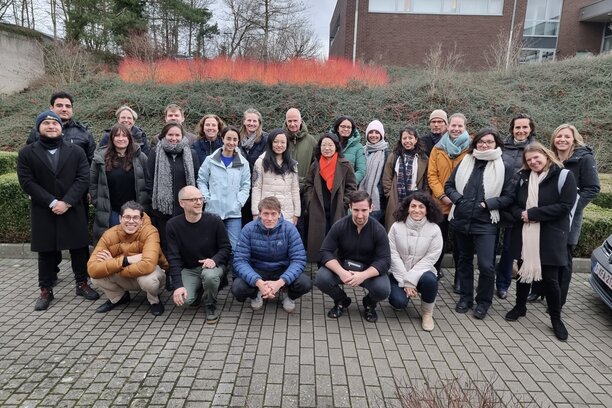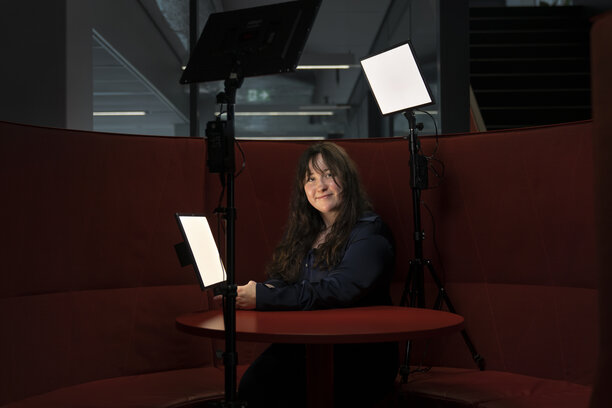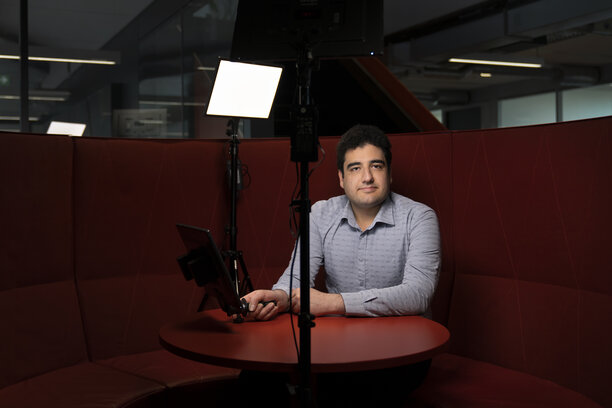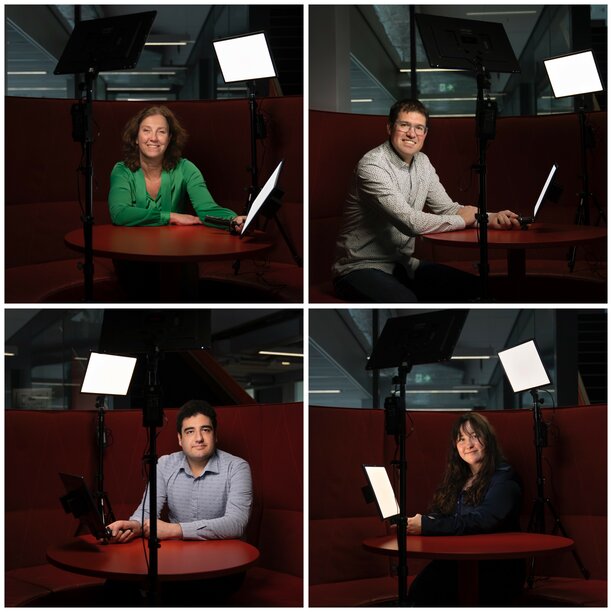‘I take care of the deadlines; the researchers take care of content’
When it comes to large research projects, the Research Support Office’s project managers know how to chase deadlines and, where necessary, support researchers. Those researchers can then focus on content.
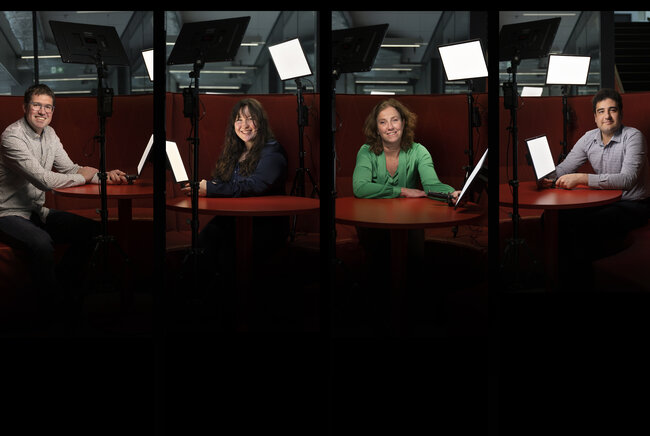
Project manager Berend van den Berge is indispensable to Professor Yvonne de Kort in running the international innovative training network, LIGHTCAP. This Eindhoven full professor is this network’s scientific coordinator. Aside from keeping an eye on deadlines and finances and organizing training sessions and congresses, the project manager functions as the social lubricant between the 15 doctoral candidates that are, in seven groups at six different European universities, researching light’s effect on the brain.
Leading an Innovative Training Network like the LIGHTCAP project is no easy task, as scientific coordinator Yvonne de Kort well knows from experience. Many international partners work together in this European project which is training 15 young international researchers. “The goal isn’t, per se, to arrive at a technical concept or product,” says the full professor of Environmental Psychology in the Human-Technology Interaction group, “but that we deliver young researchers of the future. Those who work in the sciences but can also play an important role in industry.”
De Kort talks enthusiastically about the Horizon Europe-funded Marie Skłodowska-Curie project she set up 18 months ago. “It’s a wonderful thing to be able to do. I asked researchers I respect and wanted to work with, to join the LIGHTCAP consortium. For that, I chose adjoining disciplines relevant to new developments in the area of light: from very basic to highly applied. Think neuroscientists, chronobiologists, psychologists, and lighting designers.”
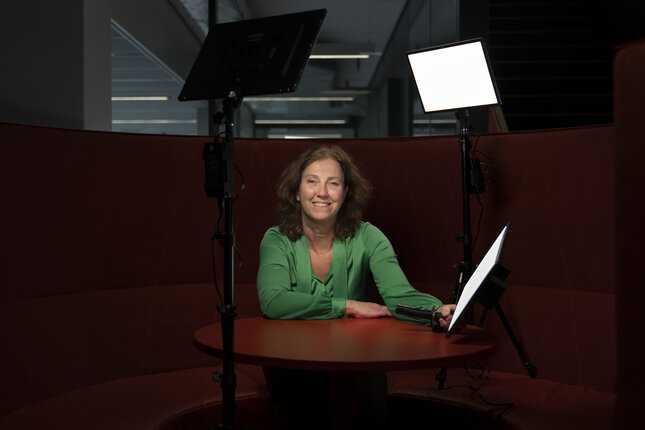
In practice
Researchers who have worked in European-funded projects know how intensive leading them can be and how much work goes into properly following regulations and deadlines. “I’ve done several national and European projects before with many industrial partners, but this is the first ITN (Innovative Training Network, ed.) I’m doing. It has a very different dynamic and takes a massive amount of work,” says De Kort. “There’s a lot of pressure to make interim deliveries to Brussels. Sometimes you have to put science aside to meet those deadlines.” Not that she’s complaining: “It’s a huge honor to coordinate 15 PhD’s.”
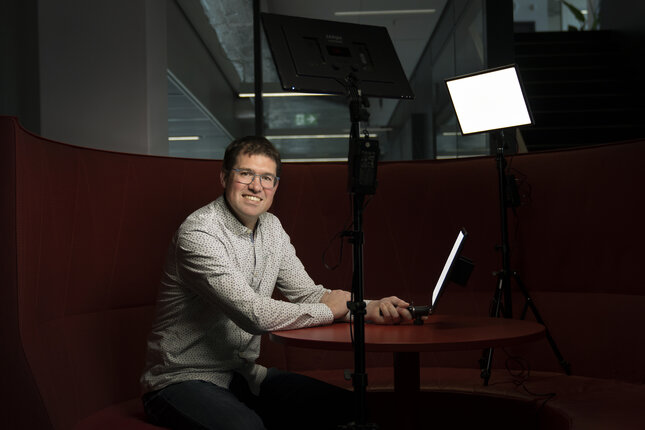
LIGHTCAP’s young scientists do a training program, symposia, and two different internships and must deliver regular group and individual reports.
Deadlines
That is where the Research Support Office (RSO) project manager pool comes in. For LIGHTCAP, that is Berend van den Berge, himself an alumnus of the Human-Technology Interaction group. “I take care of the deadlines, Yvonne takes care of content,” is how he neatly sums it up. In practice, that means he unburdens De Kort as much as possible. “So she can keep doing her own work.”
“Most important is monitoring deadlines,” he says. “The grantor must get everything on time, so we can account for the funds we receive.”
Berend is indispensable to me; I’m scatterbrained
and prefer diving into the content.Yvonne de Kort, Scientific Coordinator LIGHTCAP
“For me, personally, it’s vital that he supports me in the process and administration,” says De Kort. “Berend coordinates the researcher and doctoral candidate meetings, arranges training sessions, keeps an eye on when we have to deliver something to Brussels, and chases those deadlines. His duties also include contact with the project officer in Brussels. He’s indispensable to me in many formal tasks. I’m scatterbrained and prefer diving into the content. He brainstorms the project with me on a weekly meta-level. It isn’t always easy being the coordinator as well as a researcher.”
Privilege
Van den Berge considers his work more of a privilege than a job. “As a project manager, I get to enjoy all the great research being done without having to do it myself. Let me arrange and bring people together, I like that. And I also get to travel; recently, we all travelled to Sheffield and Liege.”
De Kort loves how Van den Berge organizes a social life beyond the to-dos. “That goes beyond arranging dinners. He’s the one who suggests getting together again. He even buys Sinterklaas gifts and writes an accompanying poem for everyone.”
I like being able to mirror with someone to see if everything’s going well,
or if I’m missing something.Yvonne de Kort, Scientific Coordinator LIGHTCAP
“And he has a warm relationship with the young researchers. The doctoral candidates often look up to us a bit as principal investigators. They’ve read our articles, and although we interact informally, we remain their supervisors. Berend can interact with them differently. In that role, he’s also privy to confidential information. I like being able to occasionally mirror with him to see if everything’s going well and if I’m missing something.”
“I follow them for a few years of their lives, and that builds a genuine bond. I love that I get to mould them into a group, to be there for them when they get stuck,” says Van den Berge. “I’m also a kind of confidant for them. Don’t forget; it can be very tough psychologically to work on the same subject for four years, working it all the way through. That can feel lonely, especially when you’re far away from home. For me, that human side’s a crucial part of my job satisfaction.”
And I’m allowed to work with such talent.
That feels more like a privilege than a job.Project manager Berend van den Berge
Van den Berge often hears of scientists not taking on large projects because they have no time for them. “To be fair, it takes up a huge amount of your time, but having such a project to your name is very cool too. It greatly boosts your research and network. And then you also get to prepare 15 doctoral candidates, which is fantastic!” He proudly adds, “And I get to work with these talents as project manager.”
“It’s important that TU/e researchers know we’re here to help them. That can remove a barrier to applying for a big project. We can help in all areas, both in applying for the project and during it.”
Never empty-handed
De Kort recommends her TU/e colleagues work with an RSO project manager. “I work fantastically well with Berend. I know when to take the lead and vice versa; we work as a true team. We’re also often addressed together in emails, which I love. Plus, Berend understands how TU/e works and has short communication lines within our organization.”
She likes that an RSO project manager has to apply for the position before a project begins. “Find someone with whom you click. I also like that there’s a pool of project managers. If there’s an emergency, someone can always step in, so you’re never left empty-handed.”
Media contact
More on our strategy
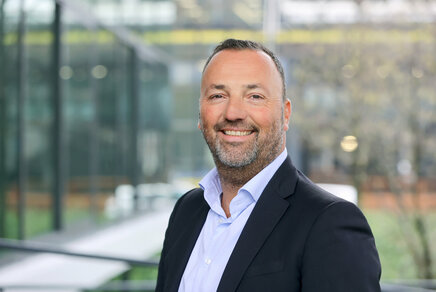

![[Translate to English:] [Translate to English:]](https://assets.w3.tue.nl/w/fileadmin/_processed_/c/f/csm_BvOF_2024_0319_AEV_license_TUe_Dirk_van_Meer_-_CORE_1__c976e259a5.jpg)
